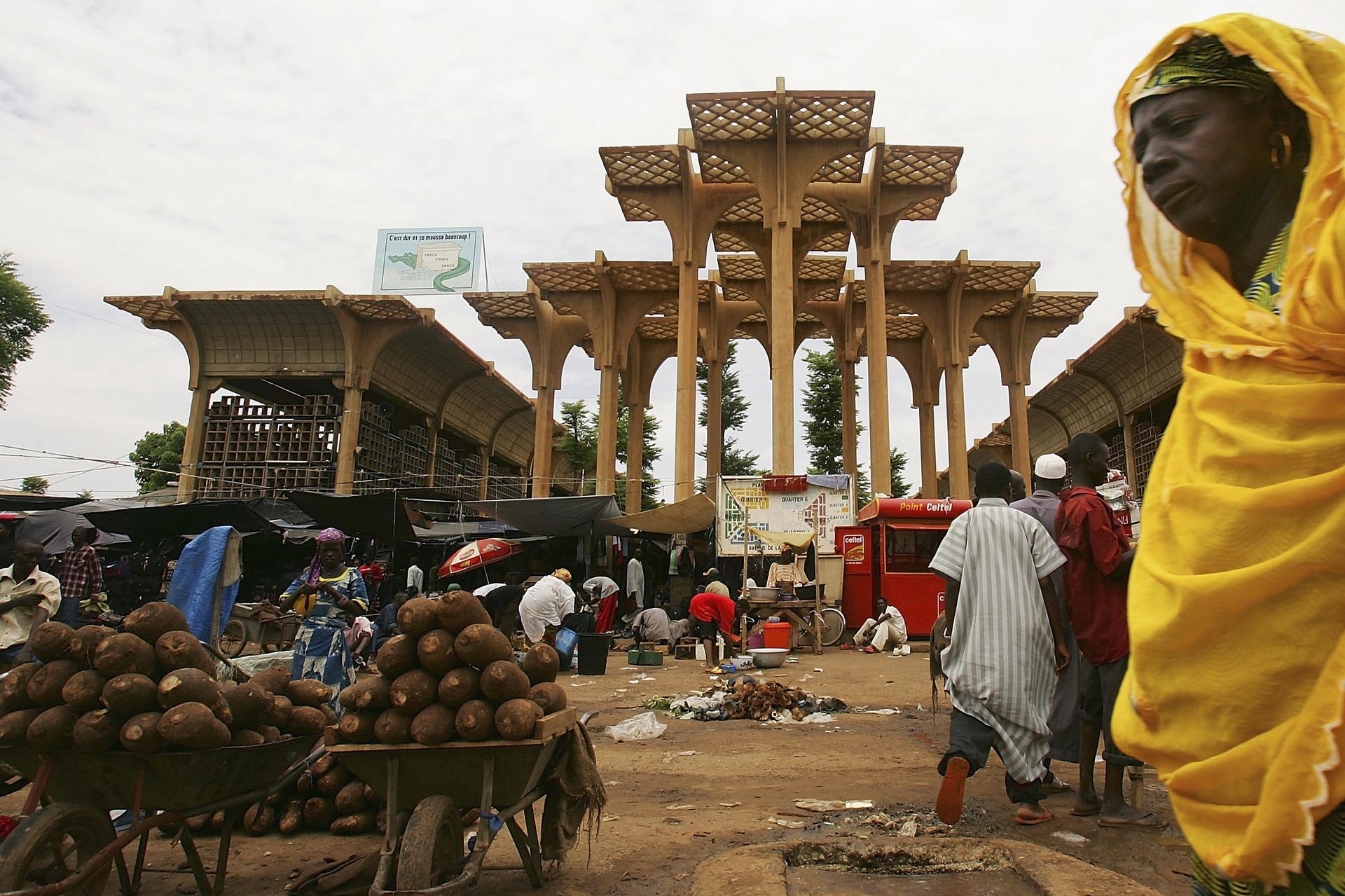Niger News: Oxfam calls for millions in emergency aid
A woman walks past the central marketplace on August 12, 2005 in Niger’s capital, Niamey. Analysts say there is food available in Niger as the country faces its third food crisis in under a decade, but people are too poor to afford to buy it.
Niger will face a "full-scale humanitarian emergency" unless millions of dollars in donations are made, said the British aid agency Oxfam, according to a statement released today.
The agency says 1.9 million people are already facing a hunger crisis, and without immediate action, the number is expected to climb to 3.5 million people within a month. In some parts of the country, every household is already rationing food and cutting back on meals, according to Oxfam.
“Millions of people are being pushed to the brink,” said Samuel Braimah, Oxfam’s Niger country director. “All signs point to an impending catastrophe if more is not done immediately. The world cannot allow this to happen.”
More from GlobalPost: 13 million people face humanitarian 'catastrophe' in West Africa
The organization is seeking an additional $12.2 million in emergency aid, having raised almost $4 million to address Niger’s immediate crisis.
Food is available for sale in Niger, according to Oxfam, but many people cannot afford to buy it. In the worst hit areas, food prices have spiked about 34 percent since last year, and about a third of the population is still in debt from food crises in 2005 and 2010, Oxfam reports.
The agency blames the current hunger crisis on a “lethal mix of drought, erratic rains, high food prices, entrenched poverty and regional conflict.”
Other parts of the Sahel are also in dire need of emergency aid, according to UNICEF. At least 10 million people in Mali, Niger, northern Nigeria, Chad, Mauritania, Burkina Faso, Cameroon and Senegal are at risk in the coming months. Aid organizations say while climate change is partially to blame for increasing food insecurity in the Sahel, the rising food prices and deepening poverty make this year more alarming.
More from GlobalPost: UNICEF warns that Sahel drought crisis could affect 1.5m children
The BBC reports that 400,000 children are at risk of severe malnutrition in Niger alone, with one in 10 likely to die. BBC Africa analyst and reporter Andrew Harding says the crisis is far more complex than just a need for food.
Besides a failed harvest and regional conflicts that have displaced hundreds of thousands of people this year, Harding says lack of education perpetuates the problem. For example, some parents give babies dirty water, causing diarrhea, which can quickly lead to severe malnutrition. Early marriage also leads to weak mothers and children, while population growth spreads already-scarce resources thin.
“And lurking behind all these factors is the biggest, most important one of all,” Harding writes. “The single, exponential ingredient that is usually responsible for turning a wretched situation into a famine or similar catastrophe: bad leadership.”
We want to hear your feedback so we can keep improving our website, theworld.org. Please fill out this quick survey and let us know your thoughts (your answers will be anonymous). Thanks for your time!
